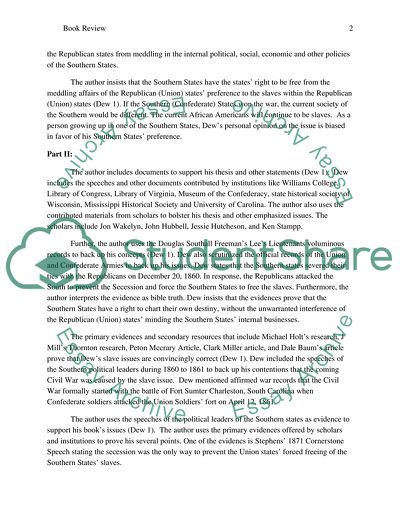Cite this document
(Apostles of Disunion: Southern Secession Commissioners and the Causes Book Report/Review, n.d.)
Apostles of Disunion: Southern Secession Commissioners and the Causes Book Report/Review. Retrieved from https://studentshare.org/literature/1817734-apostles-of-disunion-southern-secession-commissioners-and-the-causes-of-the-civil-war-charles-dew
Apostles of Disunion: Southern Secession Commissioners and the Causes Book Report/Review. Retrieved from https://studentshare.org/literature/1817734-apostles-of-disunion-southern-secession-commissioners-and-the-causes-of-the-civil-war-charles-dew
(Apostles of Disunion: Southern Secession Commissioners and the Causes Book Report/Review)
Apostles of Disunion: Southern Secession Commissioners and the Causes Book Report/Review. https://studentshare.org/literature/1817734-apostles-of-disunion-southern-secession-commissioners-and-the-causes-of-the-civil-war-charles-dew.
Apostles of Disunion: Southern Secession Commissioners and the Causes Book Report/Review. https://studentshare.org/literature/1817734-apostles-of-disunion-southern-secession-commissioners-and-the-causes-of-the-civil-war-charles-dew.
“Apostles of Disunion: Southern Secession Commissioners and the Causes Book Report/Review”, n.d. https://studentshare.org/literature/1817734-apostles-of-disunion-southern-secession-commissioners-and-the-causes-of-the-civil-war-charles-dew.


